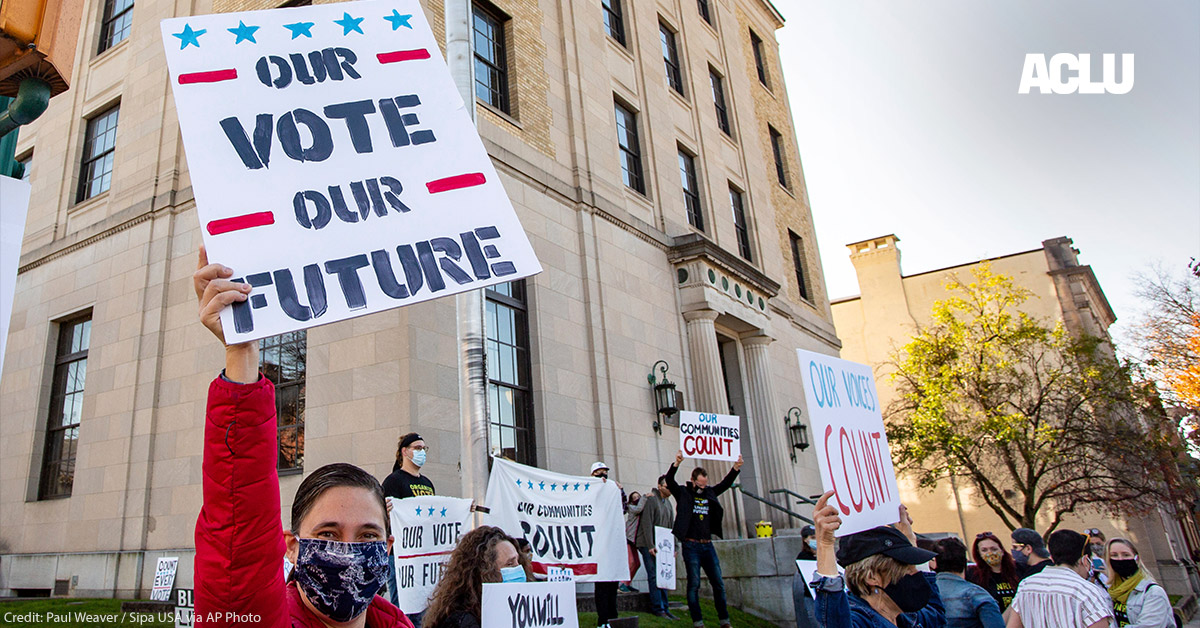
Petersen, et al. v. Fontes (Amicus)
What's at Stake
Can Arizona bypass the procedural safeguards of the National Voter Registration Act (NVRA) and remove voters from the voter rolls immediately based only on indirect information about these votersโ responses regarding their residency in the separate context of juror questionnaires?
Summary
Every other year, Arizona law requires the secretary of state to issue an Elections Procedures Manual (EPM) that has the force of law and implements state voting and elections procedures. In December of 2023, Arizona Secretary of State Adrian Fontes issued this updated EPM, in consultation with local election officials and with approval by the governor and attorney general, as required by law.
In Petersen v. Fontes, plaintiffs Warren Petersen and Ben Toma (the Arizona Senate President and Speaker of the Arizona House, respectively), challenge various provisions of the Arizona EPM, including a voter list maintenance provision that moves voters to โinactiveโ status if their juror questionnaire responses indicate a potential change of residence. Plaintiffs argue that this EPM provision is invalid because it conflicts with Arizona law, which states that registrars must immediately cancel voter registrations under these circumstances. But importantly, this EPM provision properly follows the requirements of the federal NVRA.
The NVRA includes voter list maintenance procedures, but also establishes vital procedural safeguards against disenfranchisement through improper removal from the voter rolls. Under Section 8(d) of the NVRA, if registrars receive information indicating a voterโs change of residence outside their jurisdiction, registrars are typically required to start a โnotice and waiting periodโ before they can actually cancel the voterโs registration. Registrars would mail an address confirmation notice to the voter and then allow the voter the chance to either respond to this mailing or appear to vote at some point during the next two federal general elections. During this notice and waiting period, voters who have not yet responded are treated as inactive voters, who may have to affirm their residence before they are allowed to vote againโbut importantly, inactive voters remain on the voter rolls. The exception to this notice and waiting period requirement is when a voter confirms their change of residence in writing.
The ภฯฐฤรลฟชฝฑฝแน๛, joined by our affiliate in Arizona and Arnold & Porter Kaye Scholer LLP, filed an amicus brief before the Maricopa County Superior Court in Petersen, detailing the requirements of the NVRA and explaining that Secretary Fontes properly ensured that the EPM provision at issue aligned with these NVRA requirements. First, juror questionnaire residency responses do not fall into the exception of confirmations in writing of a voterโs change of residence that would allow immediate cancellation under Section 8(d) of the NVRA. The plain language and legislative history of the NVRA show that these confirmations must come directly from the voter to an election official in order to bypass the NVRAโs notice and waiting period. Moreover, residence in the jury service context is a flawed proxy for residence in the voting context. Finally, Secretary Fontes properly followed both state and federal law in ensuring that this EPM provision complies with the federal NVRAโwhich preempts conflicting state lawโby moving these voters to inactive status in lieu of immediate cancellation. Accordingly, we urge the court to reject Plaintiffsโ challenge to this provision of the Arizona EPM.